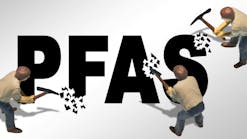My first on-air reporting job was in 1995 in Flint, MI, at WEYI, the NBC affiliate. The first six months were spent on the overnight shift from 11 p.m. to 8 a.m. Being the low man on the seniority ladder meant printing out scripts which were on 4-ply paper (for four copies), tape them together, and then run them on a conveyor belt through the teleprompter for the anchors to read. The scripts were hand-typed and the teleprompter was hand-cranked. Our equipment was dated and considered to be antique.
Then, in what seemed like only a few days (the reality was probably more like weeks), producers and reporters started getting desktop computers. Sometime in 1998, I remember one of our producers standing up in the middle of the newsroom and announcing, “You guys should try this thing called ‘Google.’ It’s a really useful tool.” Fast forward 20 years and newsrooms are using just about every search engine imaginable and are able to keep you informed via website and social media accessible anytime, and virtually anywhere. Times changed.
That was the first time I was part of a major cultural renaissance. We are now part of another. About a year ago, China announced to the World Trade Organization (WTO) that it would be placing new restrictions on its waste imports. Those restrictions have now been in effect for a few months and the results so far have been industry-altering.
As we gather for WASTECON 2018, you can’t avoid the fact that these changing times in our industries could be as monumental as the effect that Google had on the Internet. The Solid Waste Association of North America (SWANA) is fully aware and ready to address the most pressing issues facing waste management.
The Executive Director and CEO of SWANA, David Biderman, tells me, “As always, WASTECON 2018 features lots of terrific education, networking opportunities, and tours. What makes our upcoming Nashville event really special is the MRF Summit, where stakeholders from the entire recycling chain—including the brands—will discuss how to maintain sustainable recycling programs in the US and Canada in light of China’s import restrictions. Also, we are very pleased that the CEO of Waste Connections will be joining us for a conversation about his company’s growth and where the industry is going over the next 10 years. He is one of several terrific keynote speakers that will provide leaders with tools and information they can apply in their operations and with their employees. You don’t want to miss this year’s WASTECON!”
In preparation for the MRF Summit David mentioned, I would suggest you read Daniel P. Duffy’s “A Half Century of Progress.” It will give you a thorough background and solid history of MRF evolution from World War II to operating in the current markets. Duffy also offers a glimpse of the future. Confronting new obstacles can be as difficult as taking on new challenges and possibilities.
In the Landfill Manager’s Notebook column, Neal Bolton is not only imploring you to be an agent of change; he’s actually giving you some solid pointers on how to go about being a “change agent.”
For all of you young professionals, Nashville, TN, could be for you what Flint, MI, was for me: a place you’ll look back upon years from now and recall that one statement that marked the start of change.




